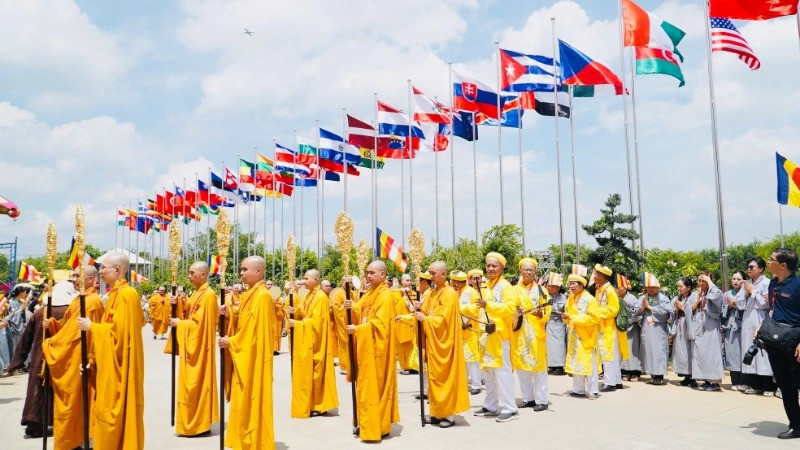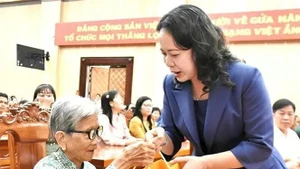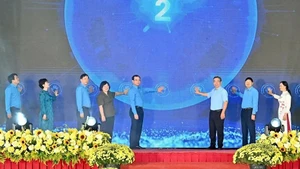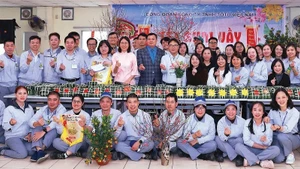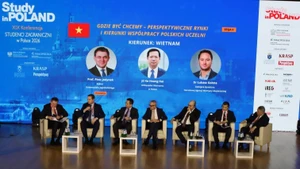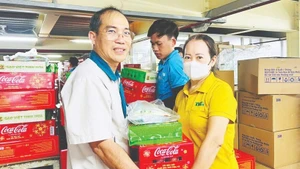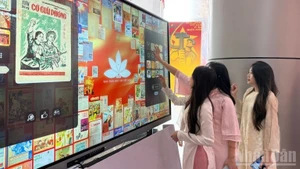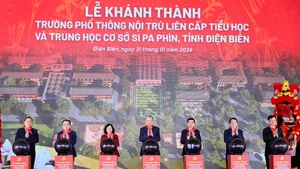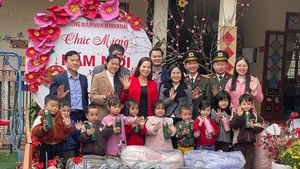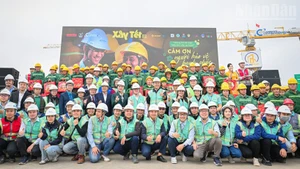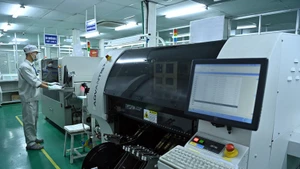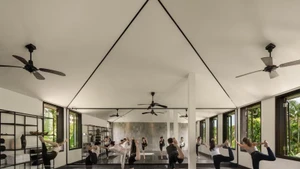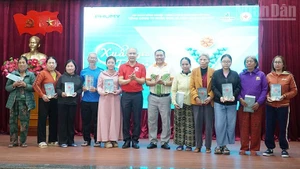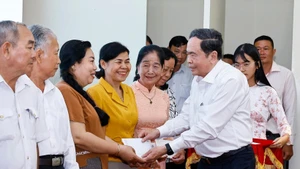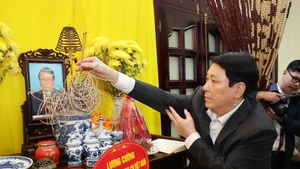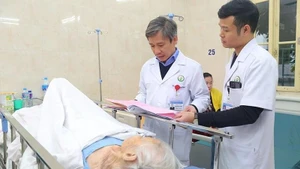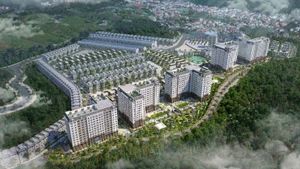Themed ‘Solidarity and Tolerance for Human Dignity: Buddhist Wisdom for World Peace and Sustainable Development’, the United Nations Day of Vesak Celebrations 2025 is expected to attract more than 2,700 delegates from at home and abroad, including 1,200 international delegates who are heads of state, leaders of international organisations, prominent religious leaders, renowned scholars, and representatives of major Buddhist organisations from 85 countries and territories worldwide.
This affirms the role of religion in facilitating the building of the great national unity bloc and national development, while also countering the distortions of hostile forces regarding religious freedom in Viet Nam.
According to Most Venerable Thich Duc Thien, Vice President and General Secretary of the Vietnam Buddhist Sangha's Executive Council, the celebration is an opportunity to promote the image of Viet Nam and its peace-loving, friendly, and united people to the world.
It also reaffirms to the international community the Vietnamese Party and State’s consistent policy in respecting and guaranteeing the right to freedom of belief and religion; the reality of religious freedom in Viet Nam; and the achievements of religious communities in Viet Nam over the 50 years since national reunification.
The sight of thousands of Buddhist monks, nuns, followers, local people, and international guests enthusiastically participating in the event demonstrates the power of unity and religious harmony, contributing to building the image of a peaceful and prosperous Viet Nam on the international stage.
The Vietnamese Party and State have followed the consistent viewpoint of respecting and guaranteeing the right to freedom of belief and religion for all people. During the national democratic revolution, the policy of “freedom of belief, solidarity between religious and non-religious people” initiated by President Ho Chi Minh made a great contribution to uniting the entire nation for victory in the resistance war against foreign invaders and achieving complete national independence and reunification.
As the country entered the period of building socialism, especially during the era of renovation, the party and state’s religious policy continued to be adjusted to meet the current situation and requirements.
In 1990, the Politburo issued Resolution No. 24-NQ/TW on strengthening religious affairs in the new situation, affirming that “Belief and religion are spiritual needs of a segment of the people. Religious ethics have many elements compatible with the building of a new society.”
Thirteen years later, on March 12, 2003, the 7th Plenum of the 9th Party Central Committee issued Resolution 25-NQ/TW on religious affairs, further affirming and developing the Party’s views and policies on belief and religion.
Specifically, Resolution 25 affirms: “Belief and religion are spiritual needs of a segment of the people, and will continue to exist alongside the nation during the process of building socialism in our country. Consistently implementing the policy of respecting and guaranteeing the right to freedom of belief, to follow or not follow any religion, and to conduct normal religious activities in accordance with the law.”
 |
| State President Luong Cuong attends UN Day of Vesak Celebrations 2025 in Ho Chi Minh City on May 6 (Photo: VNA) |
At the 13th Party Congress, our Party emphasised that “religion is a social resource”, and the Party remains steadfast in promoting the positive role and impact of religion in the cause of national construction and defence.
These principles are enshrined in the Constitution and relevant laws, most notably the Law on Belief and Religion of 2016.
In line with the Party’s resolutions and the state’s laws, religious followers and dignitaries have enthusiastically participated in patriotic emulation movements, contributing to building the great national unity. Religious communities have made positive contributions to national construction and defence. Every year, religious organisations carry out numerous charitable activities worth thousands of billions of dong.
These include building care centres for the elderly and orphans, organising free classes for disadvantaged children, providing free medical care, and running disaster relief campaigns — all practical actions that embody compassion, charity, and love, and help strengthen the great national unity.
For example, the Viet Nam Buddhist Sangha implements the ‘Charity Porridge Pot’ programme and mobile medical clinics in remote areas; the Catholic Church runs centres for HIV/AIDS patients in Ho Chi Minh City, Nam Dinh, and Thai Binh; and Protestant churches launch environmental protection and climate change response programs in the Central Highlands and Southern regions.
Party committees and authorities at all levels, from central to local, have attached great care and create favourable conditions for religious organisations to develop harmoniously.
The Viet Nam Government Committee for Religious Affairs, the Viet Nam Fatherland Front, and its member organisations have maintained coordination in hosting forums, conferences, and dialogues between religions and the authorities, thereby enhancing mutual understanding, consensus, and cooperation for the common good.
According to the Viet Nam Government Committee for Religious Affairs, Viet Nam currently recognises 43 organisations representing 16 different religions, with over 27 million followers, nearly 60,000 dignitaries, and more than 29,000 places of worship.
With the growing number of religious organisations, religion-based festivals are attracting increasing numbers of participants.
Before Vesak 2025, Viet Nam successfully hosted three United Nations Day of Vesak celebrations in 2008 with 87 countries attending at the National Convention Centre in Ha Noi; in 2014 with 95 countries at Bai Dinh Pagoda, Ninh Binh Province; and in 2019 with 112 countries at Tam Chuc Pagoda, Ha Nam Province.
Viet Nam has actively engaged and coordinated with international organisations such as the United Nations, the Human Rights Council, and global religious organisations to ensure transparency of information, promote understanding, and foster cooperation.
Viet Nam’s hosting of the United Nations Day of Vesak Celebrations 2025 has been highly praised by the international community. This event not only demonstrates the government’s respect and support for Buddhism but also affirms Viet Nam’s commitment to promoting peace, unity, and tolerance through interfaith dialogue.
